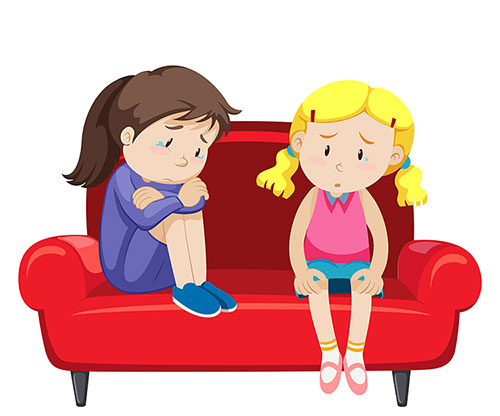Cambridge Advanced Learner's Dictionary - 4th Edition
sad / sæd / adjective ( sadder , saddest ) (NOT HAPPY)
A1 unhappy or sorry:
I've just received some very sad news.
She gave a rather sad smile.
[ + (that) ] It's sad (that) the trip had to be cancelled.
I'm so sad (that) you can't come.
[ + to infinitive ] It's sad to see so many failures this year.
I was sad to hear that they'd split up.
informal If something looks sad, it looks worse than it should because it is not being cared for:
Give those flowers some water - they're looking a bit sad.
sadness / ˈsæd.nəs / noun [ U ]
B2
Her sadness at her grandfather's death was obvious.
sad / sæd / adjective ( sadder , saddest ) (UNPLEASANT)
[ before noun ] not satisfactory or pleasant:
The sad fact/truth is we can't afford to provide homes for all.
a very sad state of affairs
sad to say C1 something you say when you are telling someone about something bad that happened:
Sad to say, the ring was never found.
sad / sæd / adjective ( sadder , saddest ) UK slang (BORING)
showing that you are not fashionable or interesting or have no friends:
You enjoy reading timetables? You sad man!
© Cambridge University Press 2013
